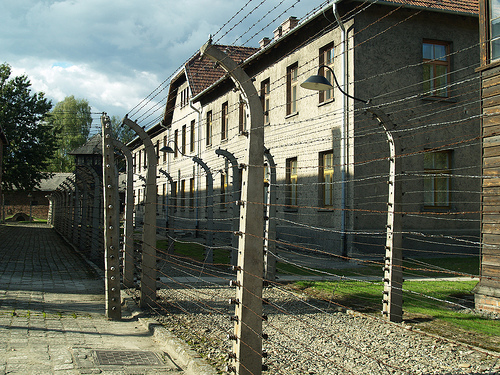
Holocaust deniers, or “historical revisionists,” as they like to call themselves, frequently cite the fact that the allies committed a number of terrible acts of violence during World War II in an attempt to justify or at the very least minimize the atrocities committed by National Socialist Germany. It is true that there were massacres at the hands of the allies, but there were key differences that distinguish the holocaust as a uniquely evil act in the midst of total war.
One common event referenced by holocaust deniers is the firebombing of the city of Dresden. This was a joint air raid performed by the British and Americans, which, over the course of three days, decimated the city. Accounts of the death toll range from 20,000 to 500,000 dead. The allies defend the attack by saying it was a key industrial and communications center for Nazi forces.
A controversy remains as to whether the attack was justified, given that obvious industrial and military targets were passed over for attacks on the more heavily populated city center, but it still fails to live up to the scale of genocide. Even the highest casualty estimates are negligible compared to the 8 million lives lost to the holocaust.
Another tragedy, and one of darkest stains on American history, is the internment of more than 100,000 Japanese Americans in “war relocation camps.” They were held for four years in what were barely better than prison conditions. This act was indeed despicable and unjustified, but even so, it hardly compares to the conditions of the millions held and eventually murdered in the concentration camps of the Third Reich.
To compare:
・ Japanese Americans were given time to gather their belongings and even sell their homes, even if in some cases it was only two days. No one came and dragged them out of their homes in the middle of the night.
・ The Japanese Internment Camps were self-sustaining: they grew fruit, vegetables and livestock for their own consumption and for export. Nazi prisoners were of course starved and forced to work until they died, if they were lucky.
・ No “medical” experiments were performed on Japanese inmates.
・ No Japanese, American citizens or otherwise, were killed in Internment Camps.
While the internment of the Japanese in WWII was a cruel and ultimately futile act, it in no way compares to the mass slaughter of the Jewish, Romani, Sinti, Polish and countless other minority groups the Nazis targeted for extermination. It is not to say that the allies are innocent in the whole thing, it was war after all, but that is no justification for the holocaust. Even if the scales were balanced evenly, no atrocity justifies another.
Help us keep the Memory of the Holocaust Alive. Donate by purchasing our exclusive DVD "Hitler's Children". So we can keep fighting Holocuast Denial. Thank you!
Photo credit: Kasia/flickr / Foter.com / CC BY-ND